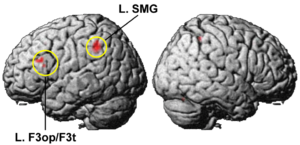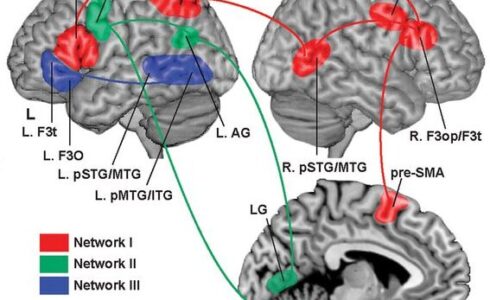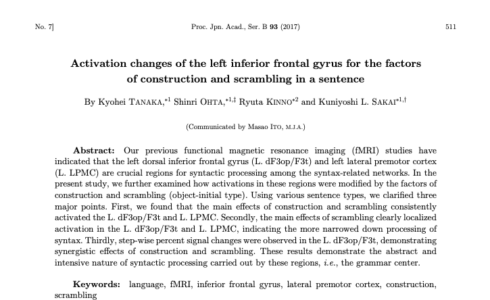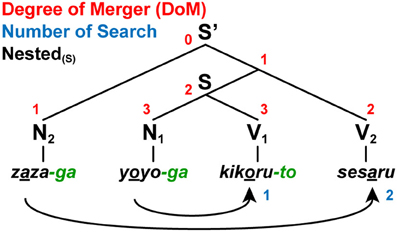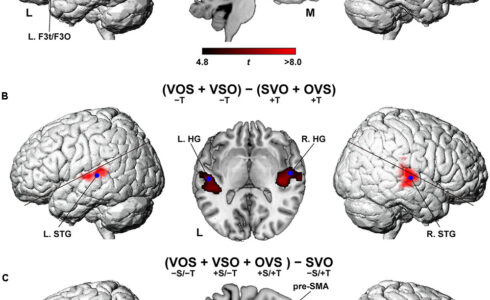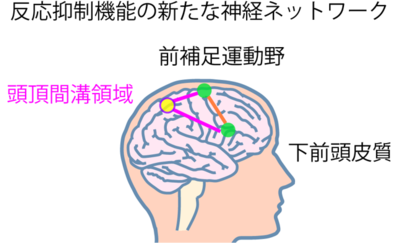Ohta et al. (2013a), Plos One
Ohta, S., Fukui, N., & Sakai, K. L., “Syntactic computation in the human brain: The Degree of Merger as a key factor,” PLOS ONE, 8, e56230, 2013. doi: 10.1371/journal.pone.0056230
Abstract: Our goal of this study is to characterize the functions of language areas in most precise terms. Previous neuroimaging studies have reported that more complex sentences elicit larger activations in the left inferior frontal gyrus (L. F3op/F3t), although the most critical factor still remains to be identified. We hypothesize that pseudowords with grammatical particles and morphosyntactic information alone impose a construction of syntactic structures, just like normal sentences, and that “the Degree of Merger” (DoM) in recursively merged sentences parametrically modulates neural activations. Using jabberwocky sentences with distinct constructions, we fitted various parametric models of syntactic, other linguistic, and nonlinguistic factors to activations measured with functional magnetic resonance imaging. We demonstrated that the models of DoM and “DoM+number of Search (searching syntactic features)” were the best to explain activations in the L. F3op/F3t and supramarginal gyrus (L. SMG), respectively. We further introduced letter strings, which had neither lexical associations nor grammatical particles, but retained both matching orders and symbol orders of sentences. By directly contrasting jabberwocky sentences with letter strings, localized activations in L. F3op/F3t and L. SMG were indeed independent of matching orders and symbol orders. Moreover, by using dynamic causal modeling, we found that the model with an inhibitory modulatory effect for the bottom-up connectivity from L. SMG to L. F3op/F3t was the best one. For this best model, the top-down connection from L.F3op/F3t to L. SMG was significantly positive. By using diffusion-tensor imaging, we confirmed that the left dorsal pathway of the superior longitudinal and arcuate fasciculi consistently connected these regions. Lastly, we established that nonlinguistic order-related and error-related factors significantly activated the right (R.) lateral premotor cortex and R. F3op/F3t, respectively. These results indicate that the identified network of L. F3op/F3t and L. SMG subserves the calculation of DoM in recursively merged sentences.
